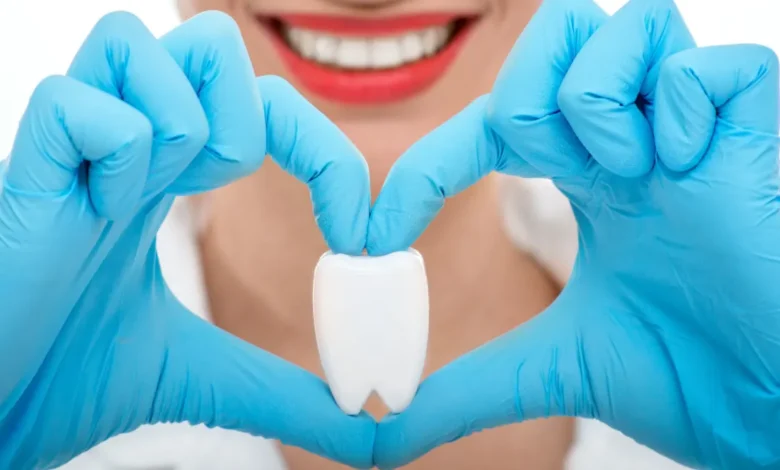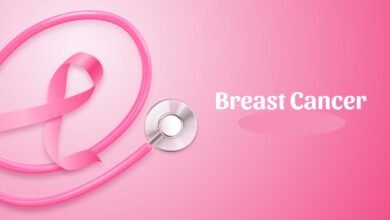Oral Health Tips: Maintaining a Healthy Smile 2023

Having a healthy smile is not only aesthetically pleasing but also crucial for our overall well-being. Maintaining good oral health involves adopting daily oral hygiene practices, following a nutritious diet, scheduling regular dental check-ups, and making lifestyle choices that promote oral health. In this article, we will explore effective oral health tips that will help you maintain a healthy smile and improve your oral hygiene habits. By implementing these tips, you can ensure that your teeth and gums stay strong and your smile remains vibrant. So let’s dive in and discover the secrets to maintaining a healthy and confident smile.
Read More: Bitvae Smart S2 Electric Toothbrush Helps Improving Your Dental Health
Importance of Oral Health
Oral health is not just about having a bright smile; it also affects your overall health. Poor oral hygiene can lead to various dental problems, such as cavities, gum disease, and bad breath. Additionally, research suggests that oral health is connected to systemic health, with certain conditions like heart disease and diabetes being linked to poor oral health. Taking care of your oral health is crucial for maintaining a healthy body.
Daily Oral Hygiene Practices
To keep your smile in top shape, it’s important to establish a regular oral hygiene routine. This routine should include brushing your teeth at least twice a day, using a soft-bristle toothbrush and fluoride toothpaste. Brushing helps remove plaque, bacteria, and food particles from the surfaces of your teeth. Make sure to brush all areas of your mouth, including your tongue, and replace your toothbrush every three to four months.
In addition to brushing, flossing should be a part of your daily routine. Flossing helps remove plaque and debris from between your teeth and along the gum line, where a toothbrush can’t reach. Use a gentle back-and-forth motion to clean each tooth thoroughly.
Mouthwash can also be beneficial in reducing plaque and freshening your breath. Choose an alcohol-free mouthwash and swish it around your mouth for about 30 seconds after brushing and flossing.
Healthy Diet for Oral Health
A nutritious diet plays a significant role in maintaining oral health. Include nutrient-rich foods in your diet, such as fruits, vegetables, lean proteins, and dairy products. These foods provide essential vitamins and minerals that support strong teeth and gums. Calcium, phosphorus, vitamin C, and vitamin D are particularly important for oral health.
On the other hand, limit your consumption of sugary and acidic foods and drinks. Sugary treats and acidic beverages can contribute to tooth decay and erosion. If you do consume sugary or acidic substances, rinse your mouth with water afterward and wait at least 30 minutes before brushing to protect your tooth enamel.
Regular Dental Check-Ups and Cleanings
Visiting your dentist regularly is crucial for maintaining optimal oral health. Schedule dental check-ups every six months to have your teeth examined and cleaned professionally. During these visits, your dentist will check for any signs of dental issues, such as cavities or gum disease, and provide early intervention if necessary. Professional cleanings help remove plaque and tartar buildup, ensuring your teeth and gums stay healthy.
Avoiding Tobacco and Alcohol
Tobacco use and excessive alcohol consumption can have detrimental effects on your oral health. Smoking and chewing tobacco increase the risk of oral cancer, gum disease, and tooth loss. Alcohol can also contribute to gum disease and dry mouth. Avoiding these habits altogether or seeking help to quit can significantly improve your oral health and overall well-being.
Tips for Maintaining Fresh Breath
Fresh breath is an important aspect of oral health. To keep your breath fresh throughout the day, consider the following tips:
Proper tongue cleaning: Use a tongue scraper or the bristles of your toothbrush to gently clean your tongue. Bacteria can accumulate on the tongue’s surface and contribute to bad breath.
Drinking water and staying hydrated: Dry mouth can lead to bad breath. Drink plenty of water throughout the day to keep your mouth moist and rinse away food particles and bacteria.
Chewing sugar-free gum: Chewing sugar-free gum stimulates saliva production, which helps wash away bacteria and freshen your breath. Look for gum with the ADA Seal of Acceptance.
Protecting your Teeth and Mouth During Physical Activities
If you participate in sports or other physical activities, it’s important to protect your teeth and mouth from potential injuries. Wear a mouthguard that fits properly to prevent dental trauma. Custom-fit mouthguards obtained through your dentist provide the best protection.
Oral Health for Children
Instilling good oral hygiene habits in children from an early age is crucial for their long-term oral health. Teach them to brush their teeth properly and supervise their brushing until they have the necessary dexterity. Encourage healthy eating habits and limit their intake of sugary snacks and drinks. Regular dental check-ups are also essential for monitoring their oral development and addressing any potential issues promptly.
Common Dental Problems and Their Prevention
Understanding common dental problems and their prevention can help you maintain a healthy smile. Some common issues include tooth decay, gum disease, tooth sensitivity, and enamel erosion. By practicing good oral hygiene, following a healthy diet, and visiting your dentist regularly, you can prevent or minimize these problems.
Benefits of a Healthy Smile
A healthy smile goes beyond aesthetics. It boosts your confidence, enhances your social interactions, and positively impacts your overall well-being. When you have good oral health, you can enjoy the benefits of a pain-free mouth, strong teeth, fresh breath, and a beautiful smile.
Conclusion
Maintaining a healthy smile requires consistent effort and care. By following the oral health tips outlined in this article, you can ensure that your teeth and gums stay in optimal condition. Remember to prioritize daily oral hygiene practices, make healthy dietary choices, visit your dentist regularly, and protect your teeth during physical activities. A healthy smile contributes to your overall health and well-being, so make oral health a priority in your life.
Read More: Why are dental and health insurance separate?
FAQs
How often should I brush my teeth?
It is recommended to brush your teeth at least twice a day, in the morning and before bed.
Should I use mouthwash?
Mouthwash can be a beneficial addition to your oral hygiene routine, but it should not replace brushing and flossing. Choose an alcohol-free mouthwash and use it after brushing and flossing.
Can a healthy diet improve my oral health?
Yes, a nutritious diet plays a significant role in maintaining good oral health. Include fruits, vegetables, lean proteins, and dairy products in your diet to support strong teeth and gums.
At what age should children start visiting the dentist?
Children should start visiting the dentist as soon as their first tooth erupts or by their first birthday, whichever comes first.
How often should I schedule dental check-ups?
It is recommended to schedule dental check-ups every six months, but your dentist may advise more frequent visits based on your individual needs.







